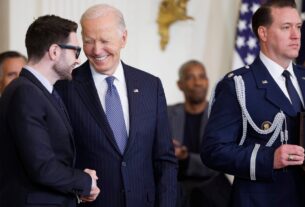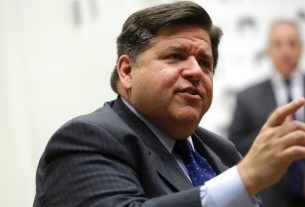((JEWISH REVIEW)) – Jewish students at Connecticut College celebrated in March when they successfully pressured their school’s president to step down over her plans to host a fundraiser at a golf club with an alleged antisemitic and racist history.
But some recoiled this week when they learned who their new interim leader would be: a university administrator holding antisemitism baggage of his own.
The liberal arts college in New London announced Thursday thay it was appointing Leslie Wong, a member of its board of trustees, as its interim president beginning July 1 until the board identifies a permanent hire. Jewish student activists noted a key point on Wong’s resume: his seven-year tenure as president of San Francisco State University, which was marred by accusations that the school had propagated “institutional antisemitism.”
“I find it unbelievable that Connecticut College chose to hire an antisemitic interim president right after our previous antisemitic president resigned,” Davi Schulman, a Connecticut College undergraduate and co-president of the university Hillel, told the Jewish Telegraphic Agency.
“I feel extremely disappointed in the administration’s continued disregard toward students of all identities, and Jewish students in particular,” Schulman said. “I worry about what the incoming Jewish students will think when they learn about their new president’s history.”
Wong is a Chinese-Mexican psychologist who has worked in higher education for more than four decades, and led San Francisco State from 2012 to 2019. During that time, local Jewish groups charged, he failed to respond forcefully enough to a series of incidents affecting Jewish life on campus, including a protest by anti-Zionists who had disrupted a campus visit by the mayor of Jerusalem, and a school information fair for marginalized students that had deliberately excluded the campus Hillel from participating.
An investigation by J. The Jewish News of Northern California showed that, while Wong had decried these incidents, ordered investigations into the school’s handling of them and met several times with Jewish representatives, he also resented spending so much time addressing Jewish concerns. The investigation found that he partially blamed Hillel for the incident involving the mayor of Jerusalem’s visit, and told Jewish groups he would “not play favorites.”
In a 2017 interview with the paper amid the controversy, Wong also declined to say whether Zionists were welcome on campus, saying, “Am I comfortable opening up the gates to everyone? Gosh, of course not. I’m not the kind of guy who gets into absolutes like that.” He later apologized for his comments.
Students at the university Hillel wrote an email to Wong saying the school had “a problem with institutional anti-Semitism,” and that he had failed to address it; the Hillel’s executive director, the local Jewish Community Relations Council and a Jewish studies professor on campus also spoke out against him. California State University’s chancellor and the state’s Jewish legislative caucus also got involved; pro-Israel students also filed a lawsuit against Wong and the university, which was settled in 2019.
That year, Wong retired from university leadership and joined the Connecticut College board.
The college defended his appointment in a statement to (JEWISH REVIEW). “Dr. Wong is a nationally respected leader in higher education whose commitment to diversity, equity and inclusion has been evident throughout his academic career,” it said, noting the board “considered the entirety of his tenure at SFSU and determined that when difficult issues arose on campus, they were handled professionally, including through extensive direct dialogue with the affected parties.”
The college added, “These efforts allowed concerned parties to be heard, provided accountability, and enabled the university to move forward.”
Wong will assume the interim presidency at a time when Jewish students on campus are on edge — and newly organized. The campus Hillel leaders had helped found a coalition of student groups who organized against the previous president, Katherine Bergeron, over the golf club fundraiser controversy and a litany of other complaints tied to administrative support of campus diversity initiatives. To oust Bergeron, the students had staged a 10-day sit-in on a campus administrative building. The campus Hillel building also served as a gathering place for student activists staging actions against Bergeron.
Whether that kind of activism can be repeated with Wong is unclear, Schulman said. The college is now on summer break, making organization a challenge. Wong will only be in this leadership role for a short while. And he comes in with a strong track record of promoting diversity and inclusion in other matters, including serving in a diversity-focused role with the NCAA board of governors.
“I think that the Jewish population has the most reason to be angry,” Schulman said. “I’ll be interested to see: Does everyone come together in the same way we did when all marginalized students were under attack? I think it’s possible.”




